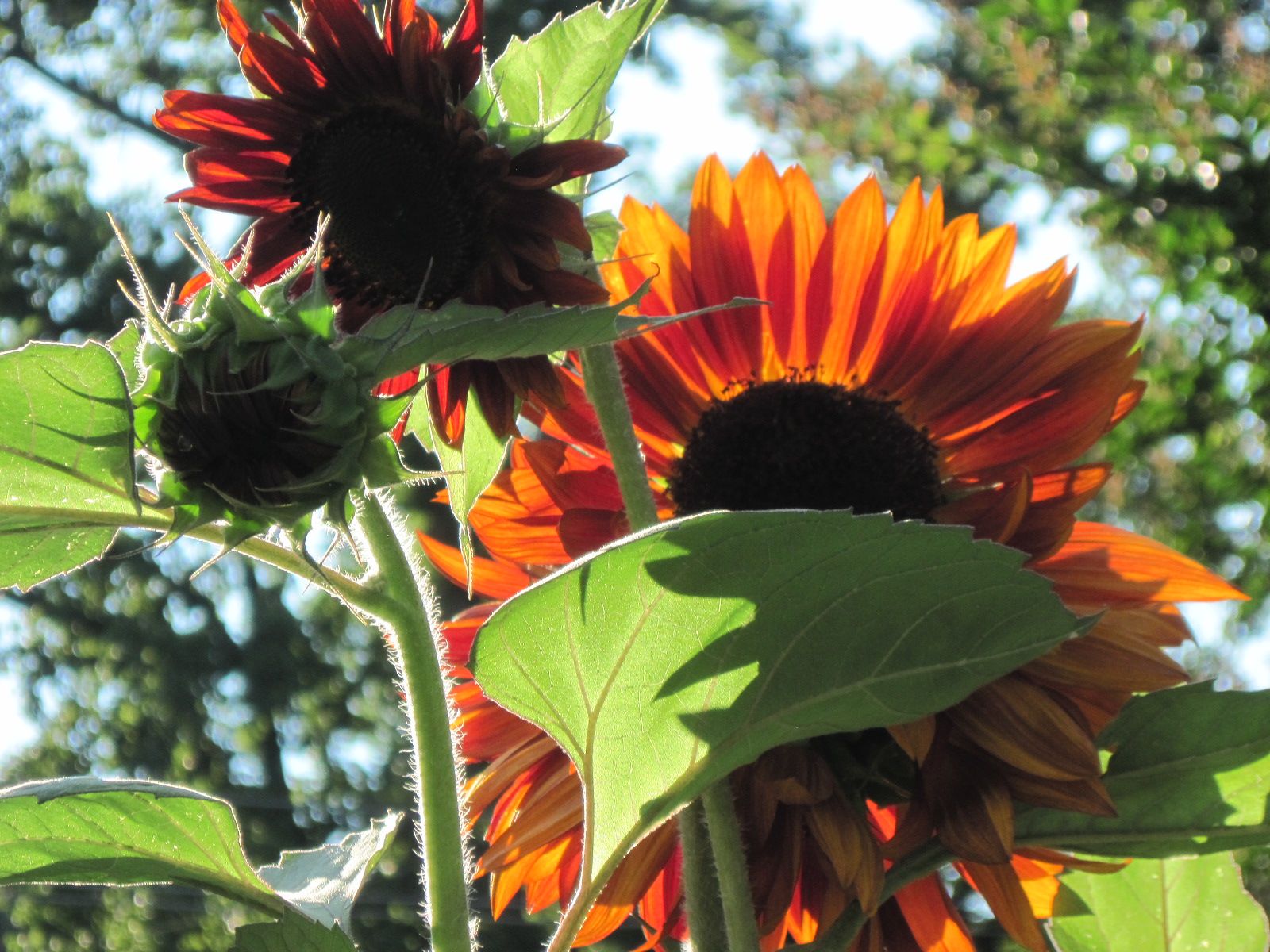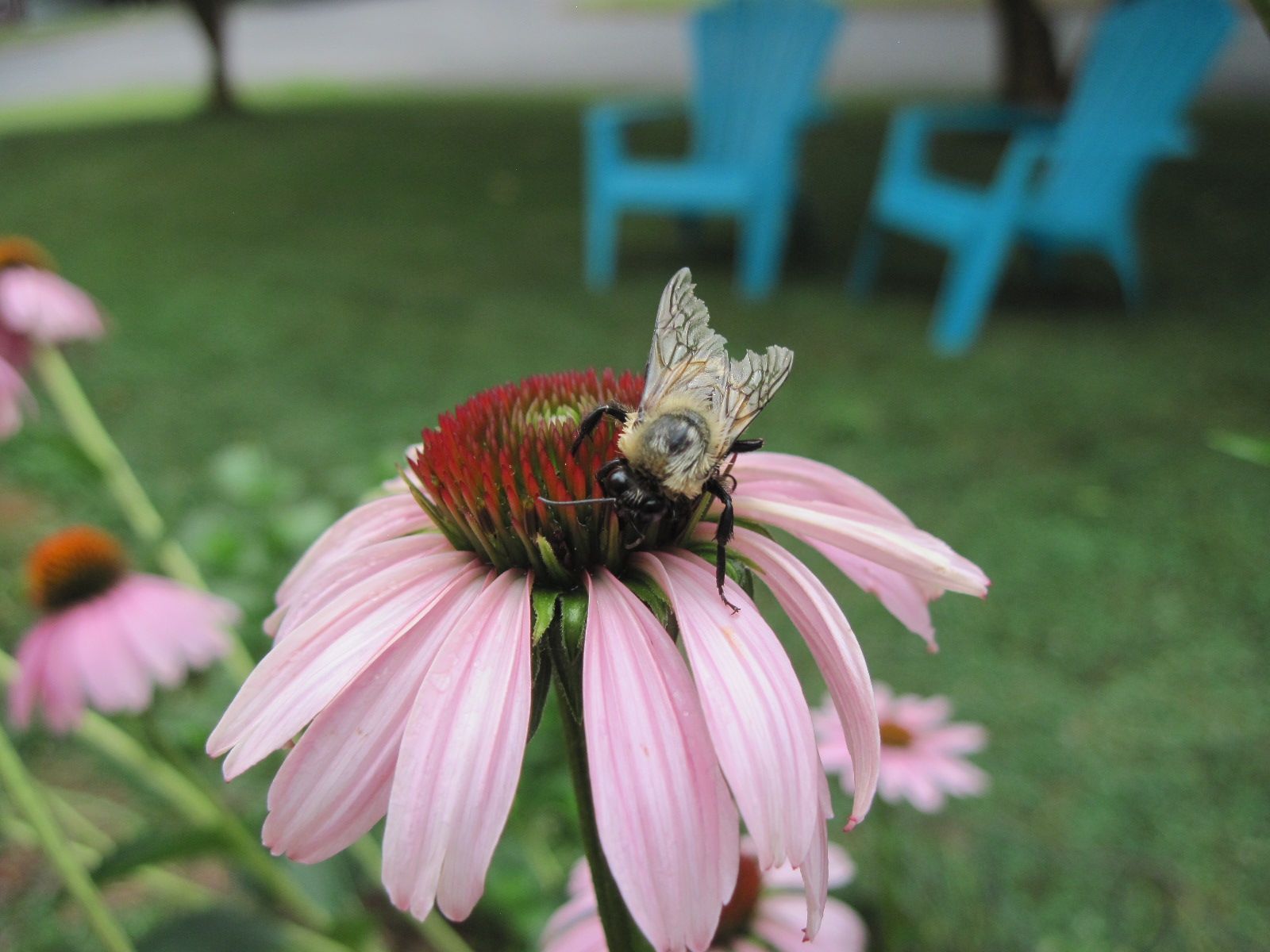A Conversation with Kyla Houbolt about Poetry & Gardening
Good poems do lots of things, but they never fail in expanding the imagination. Kyla Houbolt makes writing good lines look easy.

Introducing Kyla Houbolt
Good poems do lots of things, but they never fail in expanding the imagination. Kyla Houbolt makes writing good lines look easy. Recently, I found myself pondering her poem “Owl,” which opens: “it might be fine / to be friends with an owl.” It might indeed! I’m certainly up way too late nowadays. Then again, I don’t think an owl will like my midlife crisis music (early 90’s alternative). Moreover, their diet of insects, rodents, and the occasional fox might make social gatherings awkward. The poem, in its entirety:
It might be fine
to be friends with an owl.
They give me feathers
often enough, and call beautifully
to each other in the dark
of mornings. What
if one would come and land
right there, on the low brick wall,
and offer to have speech with me?
Oh, I would listen and not even marvel
that I could understand its words.
I would be humbled
not to be prey.
“Owl” ultimately plays with the question of how we might talk to nature. I’ve learned from experience that you can’t avoid this question. It takes different shapes: maybe we’re wondering one moment if animals can notice and love us, or we’re seeking some feeling of peace we’ve never actually felt. Kyla’s work, in general, touches on themes with this sort of gravity in fanciful ways. It’s not easy to pull off, but she does it.
I spoke with Kyla over e-mail about poetry and gardening. She shares plenty about both on Twitter, and all of it brightens the timeline in different ways. Please do add her on Twitter. And here’s where you can purchase her chapbook “Tuned.”
The conversation below has been edited for length and clarity.
Interview
AK: I just read your poem "Owl" and I think I had better ask: Is there actually an owl in your yard you're thinking of befriending?
KH: Not one I have seen that close, no. But they do visit the trees there at times.
AK: The poem says they "call beautifully" to each other. That's so evocative for a lot of us--I distinctly remember robins tweeting (not in the bird app way) in the backyard growing up. You're gardening quite a bit now--love the updates you share. Is the garden in the shape you want it to be? Are there animals you wish would (or wouldn't) visit?
KH: I love hearing owls in the early morning. One will call and then another, further off. Birds do that to find mates. You can hear other birds do that, one bird call and then another off in the distance that just matches it. Sometimes one will call over and over and there's no responding echo. That's sad.
No the garden is not in the shape I want it to be, by far. A big part of the problem is not having enough space to work in. We have a huge yard -- this is suburbia -- but I am only granted two small areas to work with. And each one had problems. The soil has not been treated well here for years. It takes a lot to bring that health back. As well, ideally I would have enough space to really foster habitat as well as having space for flowers and herbs and vegetables. I sort of try to do all that but it is all quite limited. Still, I do see lots of different types of bees and butterflies, though fewer of the latter than I would like.

I have a cat -- well, not really mine, but she was mostly stray and I started feeding her. She is too wary to come inside and also would not be either welcome or happy in this house. If I had my own space it would be different. I feed her outside and have created some shelters for her which she deigns to use from time to time, and the feeding area is also sheltered. At one time I was leaving kibble out for the whole day from early morning on, and a few raccoons showed up to have some. The cats (there were two at that point) didn't seem to mind, nor did I. But I think someone shot the raccoons (there were three of them.) People are scared of all sorts of things: snakes, wasps and bees, rabid raccoons... Every year there is a news alert about the discovery of a rabid raccoon. I would love to have enough land under my hand to have foxes and raccoons and snakes and tortoises and rabbits. But here, the land, while green and with many tall trees, is quite denatured by the use of chemical fertilizers, pesticides and herbicides. And excessive mowing as well. It's not a happy thing for me. But even in the small spaces I have, I love working with the plants and the soil.
AK: You’ve presented a picture of a world teeming with life. I'm thinking now about poetry and gardening generally, as they've have had a famous relationship. After Eden, it isn't clear the two could be separated. On a more mundane level, we think of the one work Dickinson published in her lifetime—the herbarium. Are there poems or fragments of poems about nature and gardening that you find invaluable? Words or ideas to which you keep returning?
KH: I've been trying to put into words what I think is the commonality between poetry-making and garden-making, and I don't know if I can! It's something like this: both (for me anyway) are ways I activate within myself qualities of being that are not generally present in everyday life, activate them and attempt to express them so that others can also have them activated. I once said to a question "what do you hope to accomplish with your poems" that I hope they trigger an awakening of some kind in the reader or listener - an awakening to that same area of being I experience in nature and in working with nature as a gardener.
I ran across a statement on Twitter that was attributed to Gary Snyder (and I have no idea if he actually said this but it sounds like him): "Poetry existed before language." Worth pondering! His work generally has been valuable to me for years as a "way in" as it were. He also spoke about paying attention to the kind of plants the land "speaks", and about how it is possible to sing a ridge line, looking at a line of mountain peaks as a melody.
The single poem I think of in this regard, however, is not Snyder's but one by Wendell Berry (they were and maybe still are close friends, which is interesting in itself):
The Peace of Wild Things
Wendell Berry
When despair for the world grows in me
and I wake in the night at the least sound
in fear of what my life and my children’s lives may be,
I go and lie down where the wood drake
rests in his beauty on the water, and the great heron feeds.
I come into the peace of wild things
who do not tax their lives with forethought
of grief. I come into the presence of still water.
And I feel above me the day-blind stars
waiting with their light. For a time
I rest in the grace of the world, and am free.
"The grace of the world" -- that itself is a powerful invocation of a level of being we most often don't find ways to connect with, and that's what I try to invoke in one way or another as a write and as I garden.
#GardenReport. I think this first one is forget-me-not. One phlox reseeded itself. Wallflower! And beautiful calendula. Intend to grow lots of those this year. Several perrenials in front have emerged and buds forming on others. A sweet time. pic.twitter.com/z3EGYvIVQn
— Kyla Houbolt 🔥 (@luaz_poet) April 2, 2022
AK: You’ve connected "the grace of the world" with poetry and gardening, with, as you say, "qualities of being that are not generally present in everyday life." That poetry existed before language, or—maybe another way of saying it—that poetry has a priority we have yet to comprehend, feels clear. Still, there's so much more to say about this. I'm curious to hear about what you're reading and working on now. Any forthcoming projects?
KH: What I'm working on now is primarily cultivating -- finding ways to cultivate that experience of "the peace of wild things" in the absence of much contact with wild things. As for poetry, I don't really have a project on the table, but I do have intentions of pulling some of my short pieces (like Owl or shorter) which I seem to keep producing, into a collection, maybe with some small illustrations. I am hampered by my inadequacy with the technology so have done nothing toward that but write more poems and dream of it. And I have a full length manuscript, currently titled "Mapless" that seeks a publisher. I am also participating in a little ad hoc writing group where three of us get together online every two or three weeks to share prompts and then the next time to share what we have written from those prompts. It's lovely and I've gotten a few good poems out of it. Here's one, in the March issue of Neologism Poetry.
As for 'Owl', I should rename that one because there is another called 'Owl' that was published a while ago by Claw and Blossom.
For those who might want to see more of my work, my Linktree has most of my work that's been published online.
